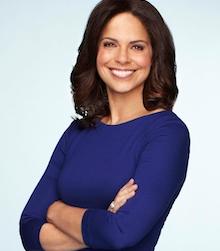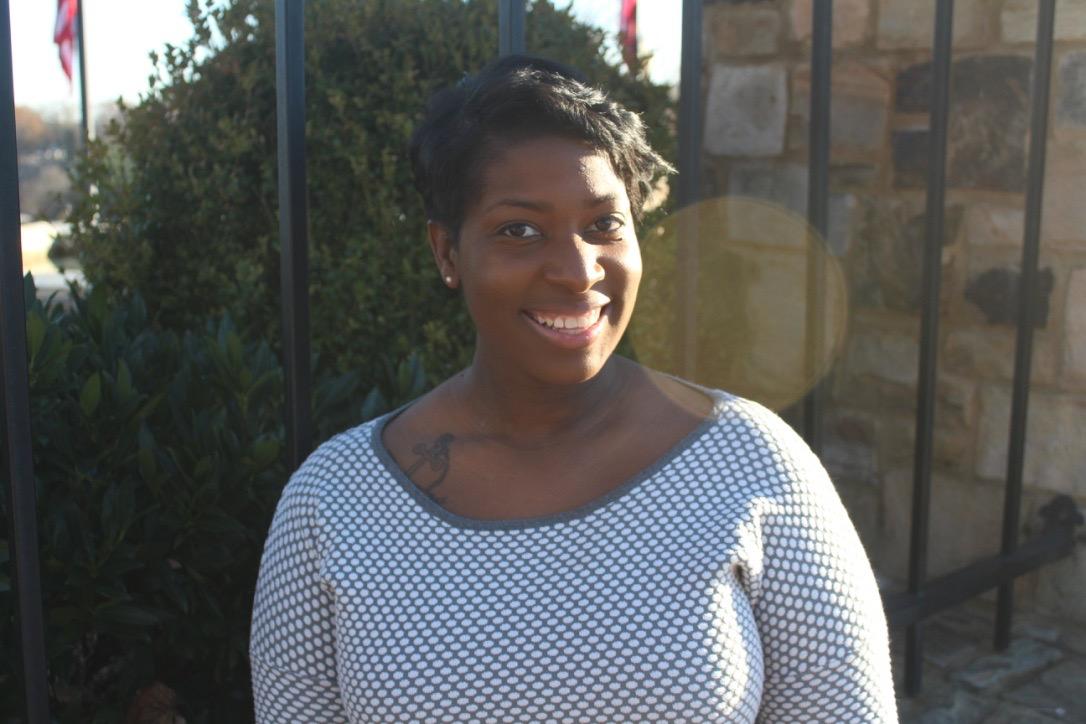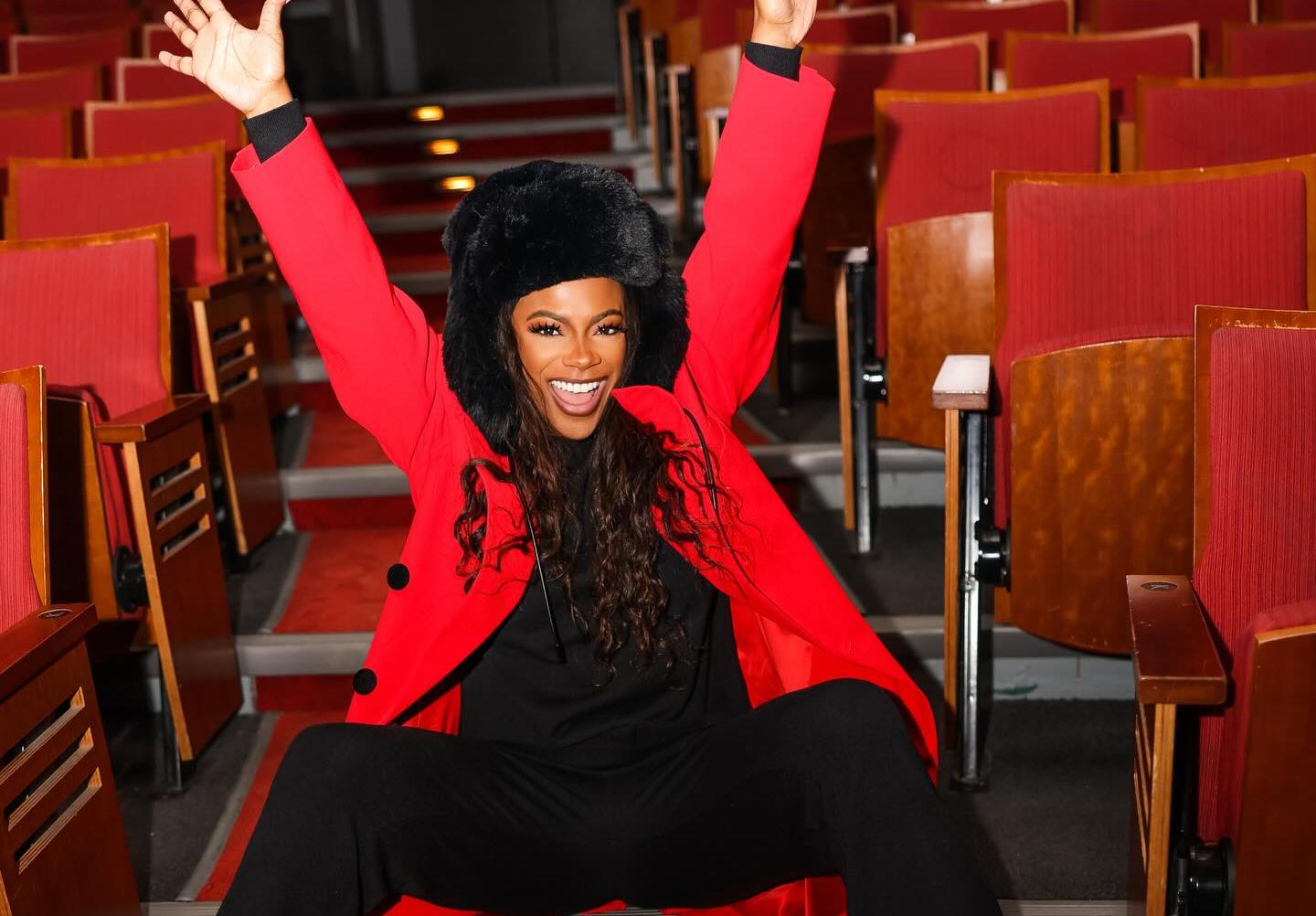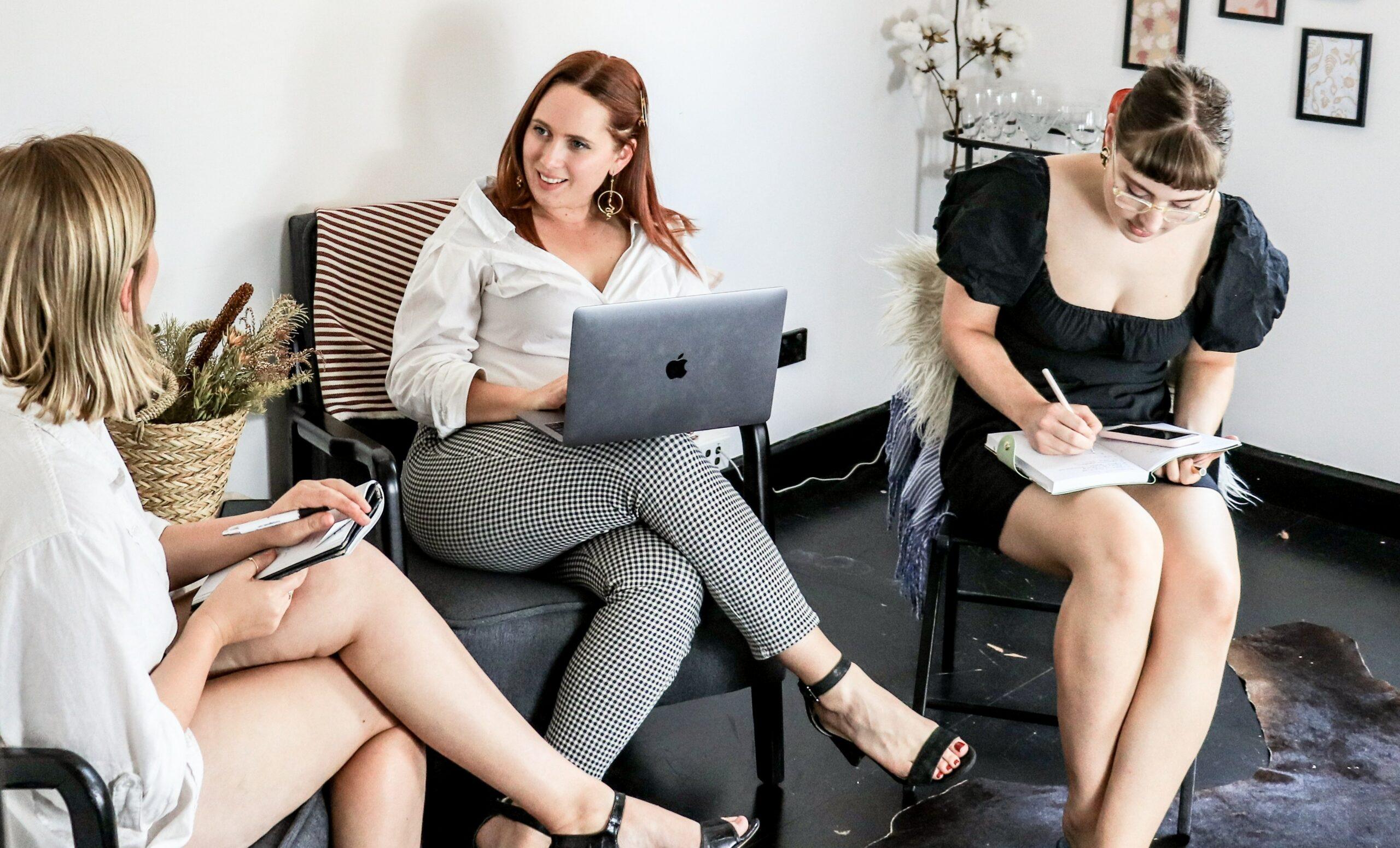The term ‘ambitious’ is not typically meant to be negative, but in her early years as a reporter, when Soledad O’Brien’s boss referred to her as ambitious, it wasn’t meant to be a compliment. It was the first time O’Brien realized that being an ambitious woman would sometimes rub people the wrong way. That moment made her understand that on her road to success there would be many hurdles to overcome, however, this realization did not slow her down.
A Harvard graduate, with well over 20 years of journalism experience, Soledad is arguably one of the leading women in broadcast journalism. She’s covered Hurricane Katrina, she reported on the Thailand tsunami, 9/11, political elections, and is well known for her production of the Black in America and Latino in America documentary series. Throughout her career, she’s worked on over two-dozen documentaries, and with plans of starting her own production company (Starfish Media Group) there are more in the works. She sheds light on issues of racial identity, civil and human rights issues and she gives back to younger generations through her nonprofit foundation. Her efforts and high quality reporting has received recognition through numerous awards and prizes.
On top of it all, she’s a published author. Her book is appropriately titled The Next Big Story. Soledad’s career thus far reads as a clear-cut journey of responsibility, hard work, determination and perseverance which all yielded opportunity and unwavering success.
Following her recent departure from CNN’s Morning Show, Starting Point, Her Agenda got a chance to speak with the multi-talented reporter and producer and CEO to discuss her media career and future endeavors.
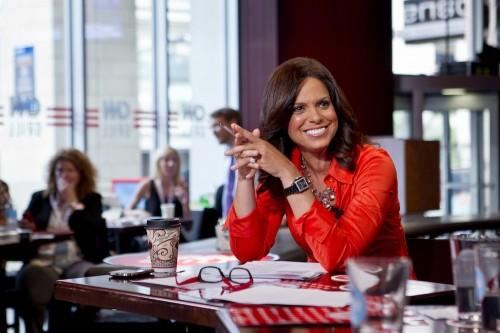
-“I’ve been fortunate and I’ve had a lot of opportunities to do very different types of things.”
Her Agenda: You’re most known for your work with CNN and your Black in America Series, but what is something you’ve done or worked on as a reporter or producer that may not be as well known?
Soledad O’Brien: I think that I’ve been really lucky over the last 27 years to have a really good resume. I was a TV network producer for a long time and then I started reporting out in San Francisco. [Some of the] documentaries I’ve done include the series Black in America and Latino in America, I’ve also done quite a few more notable documentaries, I worked on one called the Mysteries of Jonestown. I did a great documentary called Women of Ground Zero, which was about women rescue workers on 9/11. I did a documentary called Gary and Tony Have a Baby, which was a groundbreaking documentary about two men who tried to adopt a child that would have a genetic and legal connection to them. I think that while I’m known for the big sort of Black in America and Latino In America, which have won a lot of awards, really I’ve done 30 docs at CNN. I think most people know me for my political coverage over the last year with my show Starting Point. I’ve been fortunate and I’ve had a lot of opportunities to do very different types of things.
Her Agenda: Who was the first woman that showed you that you could be successful in your pursuit of a career in media?
Soledad O’Brien: I would have to think it would be my mom and my sister. It never even occurred to me that I couldn’t be successful in my chosen career because my parents were a very clear example of you put your head down and you just do it. You work hard and you get it done. It wasn’t until I really entered the workforce, probably first in Boston, and then later as I kind of moved up the ranks in San Francisco as a reporter and in New York, I realized “Oh! There are obstacles?” [laughs]. And maybe it sounds really naive, but I remember one of my bosses in San Francisco in 1994/95 looked at me and said, “Oh, you’re ambitious aren’t you?” [laughs] In a way, that was the worse thing you could possibly be, and when I was growing up both my mother and father were very clear that they wanted us to be ambitious and it was the first time I had ever heard someone use ambitious like it was a dirty word. I think that was the first time I felt like ‘Oh, I get it there are some people who don’t want me to be successful and some people who don’t want you to be ambitious.’
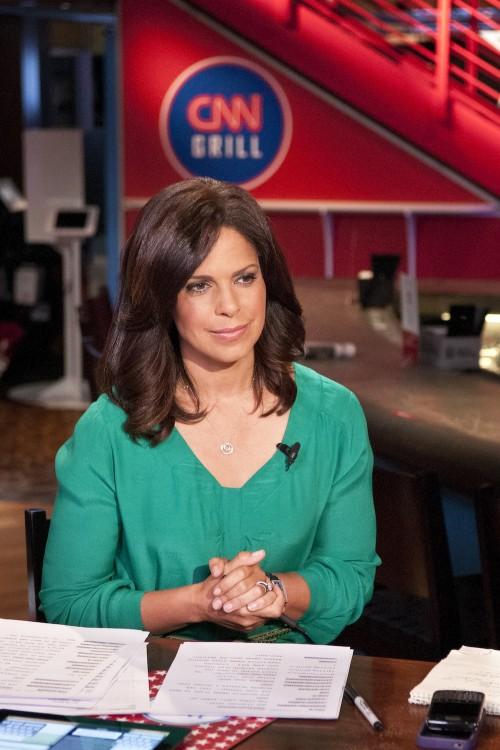
-“…when I was growing up both my mother and father were very clear that they wanted us to be ambitious and it was the first time I had ever heard someone use ambitious like it was a dirty word. I think that was the first time I felt like ‘Oh, I get it there are some people who don’t want me to be successful and some people who don’t want you to be ambitious.’”
Her Agenda: Do you have a personal mantra that gets you through your day to day and a personal support system outside of your family?
Soledad O’Brien: I don’t have a mantra, like a literal mantra that gets me through my day but I do think one thing you learn in television news is to kind of keep moving. Just because something goes awry, if you’re in the middle of a show, your job is to keep going. I think that is a really good metaphor for life. You can’t get derailed because something has happened that moment. Whether it is something big or something small, you have to [stay] on track and get through what you have to get through.
In terms of media mentors, I feel like I have mentors all over the place. I have been really lucky to be surrounded by great support, great friends, and great co-workers. I think we mentor each other; we give each other good advice, or sometimes-terrible advice. I work on a morning show, so sometimes at 9:30 on a Friday we go and have a cocktail for breakfast [laughs] and our day is fun. That’s [my] team of people, and we’ll do that this Friday because that’s my last day on air. We’ll go out to have drinks to celebrate my last day on the show. So I think it’s a matter of just having colleagues who are supportive and who are like ‘listen, buck up this is what we gotta do.’
Her Agenda: Now that you are [no longer] with your show Starting Point on CNN, what’s next?
Soledad O’Brien: We made a deal with CNN and my departure so I have to stay for the next couple of months working on some projects and some documentaries. We’re doing our sixth Black in America and then after that, starting in June, I’ll take a little time off, hang out with my kids. Then we are launching a production company that will be in partnership with CNN. But we will also produce documentaries and other media for other platforms.
Her Agenda: What was the most difficult part of your journey so far? Do you feel you have reached a pinnacle?
Soledad O’Brien: Gosh no. I don’t think anyone ever feels like they’ve reached a pinnacle, you know? And again, I think you’ve got to constantly reassess what success is. At times, I used to think success is “Boy, if I could make $60,000 a year, I would be successful.” [But] as you go, your success vision changes. It becomes not just to have a show, but also to have a voice in my show. Do I get to do the stories that I want to tell? Do I get to be able to take my kids to school and manage my life successfully and have a job that I love? All those questions change as your kids grow, and eventually [you] want to be able to spend more time at home.
Really pushing for the stories that I wanted to do was the hardest and most worthwhile thing. Making sure that the documentaries that we’ve done had my fingerprints on them and were very much editorially what I was interested in doing, [the] stories that I wanted to tell. That’s not always easy.
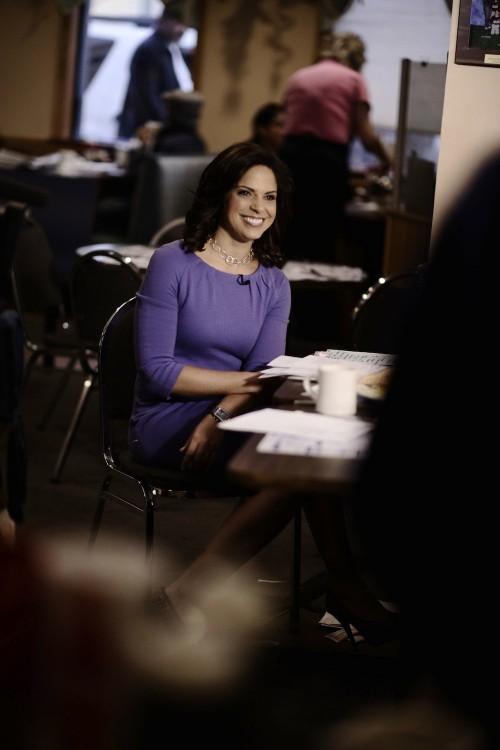
-“…one thing you learn in television news is to kind of keep moving. Just because something goes awry, if you’re in the middle of a show, your job is to keep going. I think that is a really good metaphor for life.”
Her Agenda: In regard to your work life, do you agree with some of Sheryl Sandberg’s comments about women in the workplace as far as home and work balance?
Soledad O’Brien: Yes, I think she is exactly right. I think she made some really good suggestions. I liked her book a lot. I think it applies to a lot of women. I think it applies to a lot of men too with active careers. But there are some [other] challenges in the book. [With childcare, if] you don’t have a job where you can opt in or opt out it’s very different than if you don’t really have a lot of money and it’s expensive to have a babysitter sleep over and you can only work [certain] hours because you have a husband who works other hours. It changes the equation a bit, and she talks about that in her book. I thought her book ultimately is [saying] there are great opportunities and you need to, especially if you’re a young woman, lean into them and not focus on the obstacles of those opportunities. That’s tremendous advice.
Her Agenda: What are your tips for young women and recent graduates in pursuit of a career in media?
Soledad O’Brien: It’s the same as for any advice which is get your toe in the door, figure out what it’s going to take to get in the door. The cost of entry to a large degree is lower than ever before. Technology is much cheaper. You can learn to shoot and edit without having to get really expensive equipment. So I think in a lot of ways now is a really great time and there are many more media outlets now today than ever before. Work hard, and have an internship. You’re being judged and you’re not being judged on how well you get coffee, you’re being judged on whether or not you’re a team player, if you are energetic, if you’re hard working. It’s all disguised as a request for coffee but recognize you’re being judged all the time and people want to work with people they want to work with. So to be hired you have to be somebody people want to have on the team.
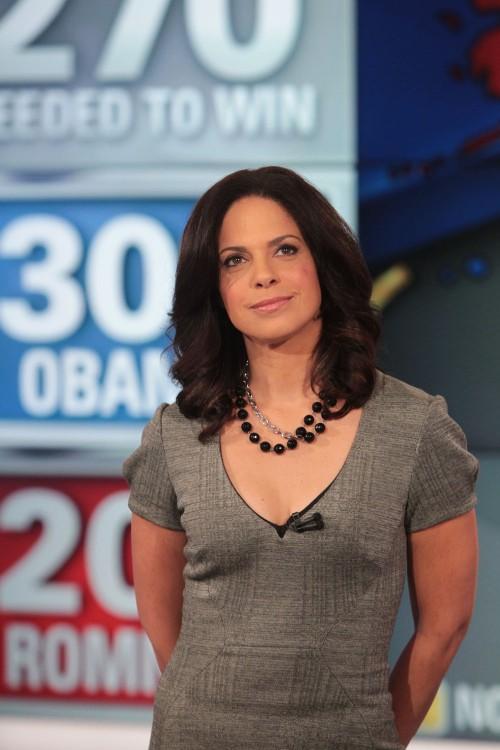
-“…you’ve got to constantly reassess what success is.”
Her Agenda: Often, women target working in front of the camera as a host, anchor or reporter without realizing that the real power lies in the producer role. However, you managed to leverage your power in front of the camera to also create and produce an original docuseries. Not many on-air correspondents get that opportunity. Can you talk about how you were able to create such an opportunity?
Soledad O’Brien: In a lot of ways it was just very authentic, I just cared a lot. To a degree, that’s the definition of a producer. You really want to be involved in every little detail. I don’t think that I take over the process, I think that I like to work collaboratively with other producers on how to make a story great. I think that’s the main thing that led me here. I don’t particularly want to insert titles or producer credit, I just really thought ‘well, I think the way you need to say this [is]…[or] I think the way you need to do this…’ If you’re in the business for a little while and people respect your opinion because you have some expertise and some longevity, then they’ll work you into some of those conversations.
Her Agenda: What are three of your top favorite reads and how have they shaped you and helped you reach your current goals?
Soledad O’Brien: I really love Crash Diet, it’s by a Southern woman writer, [Jill McCorkle], and it’s a book of short stories. She [is] a wonderful writer. There is another book called Bread and Wine and another book I’m reading now about the history of the civil rights movement. I can’t give you the actual title off the top of my head but I read everything. I just love, love, love to read and that’s part of the reason I can’t give you any book titles, because I read constantly. I think that’s the best way to figure out history and to even think about the stories you want to tell today. [Crash Diet is] fiction but it helps illuminate a character study that women are trying to figure out how to be successful; much like my context as a mother with a job trying to figure out how to make it all work.
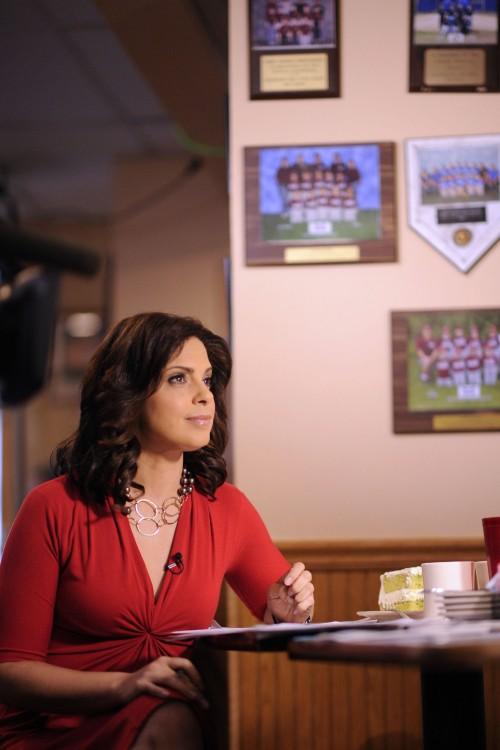
-“It never even occurred to me that I couldn’t be successful in my chosen career because my parents were a very clear example of you put your head down and you just do it.”
Her Agenda: How are things coming along with the Soledad O’Brien and Brad Raymond Foundation?
Soledad O’Brien: We have 25 girls now that are in or are in process, we are limited to 25, which is the number we wanted to get to. This is our third year going into it and it’s been really wonderful. We had terrific corporate support with Target, American Family Insurance, really wonderful. Sara Lee has been a great supporter of ours, Google has been a great supporter of ours, we have been really, really lucky and blessed to have people very interested in helping young women who are ambitious and help meet their goals and their dreams and fulfill their dream of going off to college. It’s not just about helping them pay tuition it’s about great mentoring. We’ve been surrounding the [girls] with wonderful mentors and sometimes there are two mentors per young woman so it’s going really great.
To continue to follow Soledad and her career, you can follow her on twitter: @SoledadOBrien.
*This interview has been edited for clarity and length. [published April 15th 2013]*

